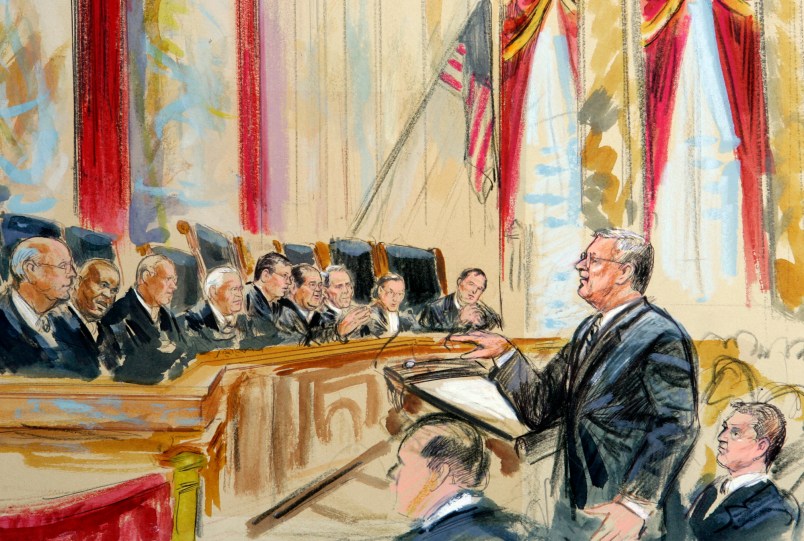It is increasingly difficult to find any unifying theory or rationale behind the Supreme Court’s election and election financing decisions other than the goal of securing the electoral interests of the Republican party. That sounds harsh. But a simple process of elimination leaves little other conclusion. States rights, originalism, deference to legislatures, various constructions of democratic theory and a lot else are controlling except when they’re not controlling. Most of the decisions line up with the conservative jurisprudence espoused by the Court’s conservative semi-majority. Except when they don’t. Cases are plucked out of the lower courts long before the high court has any obligation or need to intervene. The new case which will review the ‘one person, one vote’ rule which has been reining law for half a century would likely diminish the voting power of cities vs rural areas, minorities vs whites and Democrats vs Republicans, if decided on behalf of the plaintiffs. In other words, why not? It’s a big deal. Here’s our 5 Points run-down about what you need to know about this case.
No Controling Authority






